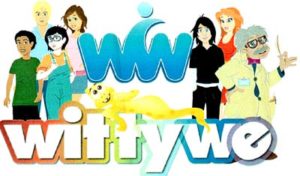Category: Homeschool
May Is Homeschool Awareness Month–Check our Subscriber Special
May is Homeschool Awareness Month. To support homeschoolers all over the world, this month’s Subscriber Special is for them:
Every month, subscribers to our newsletter get a free/discounted resource to help their tech teaching.
40% OFF HOMESCHOOL PRODUCTS FOR HOMESCHOOLERS
May 7-10, 2024
use code SPWNKEK7
Select your product from this link. Verify via an email to us ([email protected]) that you are a homeschooler (we trust you–just send us a note) and we’ll send you the code. Be sure you’ve already signed up for our newsletter to use this code (see below).
Here’s the sign-up link if the image above doesn’t work:
https://forms.aweber.com/form/07/1910174607.htm
“The content presented in this blog are the result of creative imagination and not intended for use, reproduction, or incorporation into any artificial intelligence training or machine learning systems without prior written consent from the author.”
Jacqui Murray has been teaching K-18 technology for 30 years. She is the editor/author of over a hundred tech ed resources including a K-12 technology curriculum, K-8 keyboard curriculum, K-8 Digital Citizenship curriculum. She is an adjunct professor in tech ed, Master Teacher, webmaster for four blogs, CSTA presentation reviewer, freelance journalist on tech ed topics, contributor to NEA Today, and author of the tech thrillers, To Hunt a Sub and Twenty-four Days. You can find her resources at Structured Learning.
Share this:
5 Surprising Ways Homeschoolers Use Canva for Learning and Fun
5 Surprising Ways Homeschoolers Can Use Canva for Learning and Fun
Explore how your homeschoolers can use Canva to enhance their learning, graphic design, and tech skills to level up their assignments. We’ll cover tips and specific examples of how your children can create infographics, videos, websites, posters, and more using this useful tool for free at home.
 Are you like me and always looking for creative ways to add technology to your lessons?
Are you like me and always looking for creative ways to add technology to your lessons?
…Or maybe technology to you is something super scary and should be avoided like the plague!
Well, have you heard of Canva?
I’m here to tell you, this easy tool will surprise even you with how you can creatively captivate your homeschoolers without the hassle of clunky tech.
Let me show you how below!
What Is Canva?
First off, Canva is an online tool that allows people to create graphics, videos, documents and designs easily with thousands of customizable templates and resources.
Because it is super user-friendly, it can be useful for beginners, professionals, and in our case, your homeschooler!
Share this:
May Is Homeschool Awareness Month–Check our Subscriber Special for Homeschoolers
May is Homeschool Awareness Month. To support homeschoolers all over the world, this month’s Subscriber Special is for them:
Every month, subscribers to our newsletter get a free/discounted resource to help their tech teaching.
40% OFF HOMESCHOOL PRODUCTS FOR HOMESCHOOLERS
May 9-12, 2023
Select your product from this link. Verify via an email to us ([email protected]) that you are a homeschooler (we trust you–just send us a note) and we’ll send you the code. Be sure you’ve already signed up for our newsletter to use this code (see below).
Copyright ©2023 askatechteacher.com – All rights reserved.
Here’s the sign-up link if the image above doesn’t work:
https://forms.aweber.com/form/07/1910174607.htm
Jacqui Murray has been teaching K-18 technology for 30 years. She is the editor/author of over a hundred tech ed resources including a K-12 technology curriculum, K-8 keyboard curriculum, K-8 Digital Citizenship curriculum. She is an adjunct professor in tech ed, Master Teacher, webmaster for four blogs, an Amazon Vine Voice, CSTA presentation reviewer, freelance journalist on tech ed topics, contributor to NEA Today, and author of the tech thrillers, To Hunt a Sub and Twenty-four Days. You can find her resources at Structured Learning.
Share this:
Creative Options for Remote Learning
With schools closed for in-person learning and many children being educated at home, parents are scrambling for quality alternatives that work in a home environment. One of our Ask a Tech Teacher contributors has some ideas you may not have thought of:
How to Make Remote Learning Work For Your Children
 Many parents are choosing to opt-out of traditional schooling, but the question of how to create a well-rounded curriculum or who to hire for this task is often the barrier that prevents at-home learning. In this article, we’ll help you make a decision by presenting popular remote learning options or childcare resources that can support homeschooling or non-traditional approaches.
Many parents are choosing to opt-out of traditional schooling, but the question of how to create a well-rounded curriculum or who to hire for this task is often the barrier that prevents at-home learning. In this article, we’ll help you make a decision by presenting popular remote learning options or childcare resources that can support homeschooling or non-traditional approaches.
Traditional Homeschooling
Homeschooling is a progressive movement where parents educate their children instead of sending them to public or private schools. Families will choose this option for various reasons, including dissatisfaction with public education, constant relocation, or a bad social environment.
Some of the many positives of homeschooling your children include:
- Home-educated children score 15 to 30 percentile points higher than other students.
- Homeschooled children get accepted by colleges at a higher rate than other students.
- Homeschool helps children develop better social skills than their public school peers.
- Special needs children receive a significantly higher level of education on average.
- Adults who were homeschooled are more politically tolerant and happier on average.
Homeschooling is legal in all 50 states, but the legal requirements for this education option vary from place to place. If you’re in the process of pulling your children out of public education, you’ll need to write a letter of withdrawal to the school board that describes your intent to homeschool.
There are many curriculum options available for parents. As long as your curriculum of choice follows the requirements of your state, they can apply for college once they graduate. Parents don’t need a formal teaching degree to qualify as homeschool teachers. It may be beneficial for you to take an online course that goes over teaching fundamentals and how to run a classroom.
Share this:
Equipment You Need for Online Tutoring
Teaching during the pandemic has turned the iconic job of education on its head. Should you teach at home or in school–or with a hybrid approach? How can you be effective with the new rules required to ensure safety while maximizing the students’ educational journey? Is it safe to enter the classroom? You’ve never taught remotely before–how do you do that and still meet your school’s education standards and curricula?
Many teachers are turning to homeschool co-ops or tutoring programs as reasonable approaches to pursuing a job they love in a way that allows students to succeed. If this is a choice you are making, here are suggestions from one of our Ask a Tech Teacher contributors for equipment you’ll need to succeed in this new approach:
8 Props and Pieces of Equipment for Tutoring Students Online
 The equipment and props you use when teaching your students online can make all the difference when it comes to how successful you are.
The equipment and props you use when teaching your students online can make all the difference when it comes to how successful you are.
They can affect how engaging your lessons are, how much your students enjoy them, and even how professional you appear.
Choosing the right equipment and teaching tools is not just essential – your decisions can make or break your online teaching career.
Most online teaching platforms have basic requirements, like a high-quality headset, web tools, and a reliable internet connection, but there are other things you need to take into account before you start teaching online – things like good lighting and visual teaching aids can go a long way.
Here are eight things you’ll need to become a successful online teacher.
1. A Background
Most online teaching centers require their tutors to have some kind of professional backdrop behind them – this can be a blank wall that you’ve decorated with relevant classroom posters.
You can also set up a bulletin board behind you with your name and some interesting items that say something about your personality, like trinkets and souvenirs that relate to your hobbies. Setting up your virtual classroom can also be a great way to unleash your creativity!
You can also incorporate flags, ABCs, or a reward system into your bulletin board to keep your students more engaged.
Share this:
5 Fun Science Experiments Kids Do at Home
Getting ready for extra time with kids? Here are five great ideas that are energizing and motivating:
5 Fun Science Experiments Kids Can Do at Home
 All children are born scientists. Until education – or spoilsport parents – ruins them.
All children are born scientists. Until education – or spoilsport parents – ruins them.
Kids have a natural curiosity that is insatiable due to their innate ability to get to the bottom of anything they set their minds on. Be it blowing soap bubbles or building towers of spaghetti, they are second only to seasoned engineers and CEOs at getting results.
However, over the past few months, kids have largely been cooped up at home due to the impact of COVID-19; the lack of access to a tried-and-true schooling process and resources will result in young children missing out on foundational concepts in literature, math and science that prepare them for a lifetime of learning and working.
Virtual schooling is clearly not an effective solution, according to a study done by the National Alliance for Public Charter Schools (NAPCS), which looked at schools specifically designed to teach coursework online with significant budgets invested in research and planning. “If they can’t make it work, it seems unlikely that parents and teachers Googling resources will do any better,” said Eric Hanushek, economist and education researcher at Stanford.
Well, don’t let that deter you. As a STEM (Science Technology Engineering Mathematics) learning advocate for kids, I can’t understate the importance of teaching simple scientific and number concepts at home, because science isn’t something you learn only in a classroom. Research shows that kids as young as pre-school or kindergarten age have divergent thinking capabilities. Trying out simple experiments with things found in and around the house can improve their critical reasoning as well as spatial skills, and promote a curiosity-mindset that they’ll carry well into adulthood.
So, here are some fun activities and easy DIY projects to get your kids excited about science. Before you let them dive right in, please make sure all experiments are done under adult supervision. (more…)
Share this:
Helping My Daughters Prepare for the ACT Exams
A few months ago, Jane Sandwood sent me a nice note. She’s a a freelance writer, editor and former tutor, homeschooler, and mother of two teenage daughters. She’d read my articles about preparing for SAT/ACTs and had a story of her own detailing how she helped her children prepare for their ACT. I think you’ll enjoy her experiences! 
As spring approaches, my eldest daughter Katherine, now in her junior year, is bracing herself for the upcoming ACT exams, while my youngest, Elizabeth, a sophomore, is getting ready for next year. I am a former tutor and for almost 10 years, I helped students prepare for both SATs and ACTs, relying heavily on tech tools and games to keep them motivated. Somehow, even students who needed the most help weren’t quite as challenging as my own daughters, and the lines between tutor and mom were often blurred, as is to be expected.
Different Learning Styles
Katherine and Elizabeth are just about as different as two people can be when it comes to their attitudes about school and their interests. Katherine, who wishes to be an actor, always took to her studies almost instinctively, since she was a child. She took great pride in handing in her homework neatly, took great pains to finish all her tasks, and was more of a rote learner than Elizabeth, who is more into writing, and who always took a more critical, analytical approach to her studies.
Elizabeth is naturally bright and quick, and has an enviable memory. She has always loved reading and has amassed quite a collection on her Kindle, yet is reticent to complete homework and has always had a strong aversion to maths. Because things tend to come easier to her, she is easily bored and far less disciplined than Kathy when it comes to homework and creating a study strategy. She also struggles with time management, often getting lost in a book or musical album and arriving to school without having completed home tasks.
Share this:
Zapzapmath adds multiplayer option and more to their popular app
 Zapzapmath is a free gamified ecosystem that teaches math skills aligned with many national and international standards. Its format is engaging, music lively, and layout colorful. The over 180 games spanning 900 difficulty levels are fast-paced and interactive and cover over 180 math topics. Zapzapmath has been awarded a plethora of education accolades and is ranked in the top 10 of the education category in 58 countries including the US and China.No surprise when you look at all the topics included in this robust app:
Zapzapmath is a free gamified ecosystem that teaches math skills aligned with many national and international standards. Its format is engaging, music lively, and layout colorful. The over 180 games spanning 900 difficulty levels are fast-paced and interactive and cover over 180 math topics. Zapzapmath has been awarded a plethora of education accolades and is ranked in the top 10 of the education category in 58 countries including the US and China.No surprise when you look at all the topics included in this robust app:– Fractions
– Subtraction
– Time
Now, Zapzapmath has made the experience even better with a long list of enhancements, in-game improvements, and an even greater variety of features. These are designed for all types of players from those who play at school to students who log on at a homeschool or through a family account. This is perfect for the many different ways students learn math, the wide variety of digital devices being used, and gives a nod toward the lifelong learner who is as likely to play math games because they love learning as that it’s part of teacher-directed activities.
Share this:
What is WittyWe and Why You Want to Use it
There seems to be a limitless supply of online education content. In fact, my email box and social media explodes with them. But often, these offerings are too basic, a lite version of a paid program that isn’t terribly robust, confusing, or created by people who don’t really understand how to blend technology and education. As a busy teacher, I want resources that are clear, easy-to-use, accessible by all types of students, scalable, and fun.
I found that.
Understand, finding a reliable source is a big deal to me. I give potential new sites the seven-second test: If I’m not engaged and excited in seven seconds, I move on. If I have to work too hard to figure out how to use it, I move on. If it requires more than three clicks to access content, I move on.
WittyWe had none of these problems.
WittyWe is a K-9 learning environment that inspires students to become passionate about meaningful learning through engaging video content. Using techniques such as storytelling, resolving real-life cases, learning through play, and self-teaching, WittyWe covers academic topics such as science, social studies, law, economics, entrepreneurship, and engineering as well as life skills like time management, learning, money management, social awareness, healthy living, goal-setting, and leadership. The videos are arranged as themes, online courses, and/or guided suggestions through Ask the Professor. In this last option, students tell the Professor what they’re interested in by theme, grade, and difficulty level, and he suggests appropriate videos.
Share this:
3 Technology Benefits for Homeschoolers
 One of the wonderful Ask a Tech Teacher contributers, Jenny Wise, is a busy homeschooler who suggested I publish an article about the benefits of technology for the homeschooler. I asked Jenny if she would share how she came to homeschool her children, how technology contributes to her success, and then share resources. Here are her thoughts:
One of the wonderful Ask a Tech Teacher contributers, Jenny Wise, is a busy homeschooler who suggested I publish an article about the benefits of technology for the homeschooler. I asked Jenny if she would share how she came to homeschool her children, how technology contributes to her success, and then share resources. Here are her thoughts:
At one time, homeschooling was a religious or moral choice made by families that wanted to guide the education of their children more carefully than a public school system would. Today, millions of families choose to homeschool for a variety of reasons, ranging from protecting their children from bullying and violence to avoiding the standardized testing that permeates public schools. Homeschool curricula have greatly improved over the past few years, and new technologies are making it easier for families that homeschool their children but don’t have education degrees themselves. These technologies are helping students achieve academic and social success while meeting the needs of various learning styles.
- Experiencing Proven Curricula and Support
Some parents would love to homeschool their children but just don’t feel confident in their ability to deliver a sound education that will help their children develop the skills and knowledge they need to attend college and become successful adults. Thanks to online homeschooling programs and accredited curricula like the one offered by Calvert, parents can access the tools and support they need to deliver top-notch education to their children at home.













































